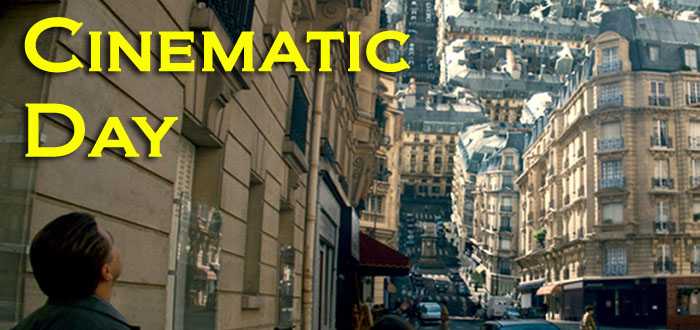It was inevitable that DC would join rival Marvel in flooding cinemas with a shared universe of characters and stories. The onslaught begins with the worldwide launch of Batman v Superman: Dawn of Justice later this month. It arrives very late in the superhero cycle, and success is by no means guaranteed. How much longer can the current blockbuster trend keep going?
Taking to the skies
It all began in 2002, when Sam Raimi’s Spider-Man swept aside a trio of established franchises to become the year's biggest hit. They were no pushovers, but sequels to Harry Potter, Star Wars and The Lord Of The Rings.
After some growing pains, the superhero factory would hit another milestone with Chris Nolan's Batman Begins. Its serious tone, art house aesthetic and A-list cast elevated the comic book genre to new levels of prestige and box office success. Marvel looked on, and quietly gathered the resources needed to assemble its Avengers. In May 2008 it released the mildly popular The Incredible Hulk. A month later, Iron Man was a massive hit that left audiences eager for more.
I believe the genre reached its peak in 2012 with Dark Knight Rises and The Avengers. Both films raised every stake imaginable, with gigantic production budgets and unprecedented hype. Batman faced an adversary that broke his body and spirit; although the plot spiralled out of control, Nolan’s final entry showcased his superb film making ability and completed Batman's arc in a satisfying way. It was however, dethroned by The Avengers. Boasting a roll call of heroes including Thor, Captain America and Iron Man, the careful orchestration of individual films delivered a massive pay off. An intergalactic menace, combined with the team's growing pains, unleashed the Marvel Universe at full volume. It surpassed all expectations and flipped the tables on DC's dominance of the genre. On top of that, various seeds were planted within the story to set up the next phase of box office hits.
Turbulence
By late 2015 it seemed there was nowhere to go for superheroes but down. The spectre of Lucas and Spielberg descended into multiplexes with Jurassic World and Star Wars: The Force Awakens. Both set box office records. But as we saw before, the genre continued to find new angles and opportunities. Deadpool, with a determined Ryan Reynolds and some very clever marketing, was a huge success. It showed audiences were eager to embrace an edgy superhero, one who wilfully tossed aside genre conventions to earn an R rating.
The crash?
Regardless of any concerns about viewer fatigue, 2016 and beyond have been mapped out with loving care. Batman v Superman is set for release in March, with The Joker's return ensuring Suicide Squad hits cinemas in August with plenty of hype. DC then rolls out Justice League, The Flash, Aquaman and Wonder Woman. Marvel is equally stocked up with Captain America: Civil War, Doctor Strange, and Thor: Ragnarok.
A global empire is now dependent on the diminishing returns of superheroes. To ward off threats, studios have marketing budgets that allow them to saturate media across every platform imaginable. The DC vs Marvel rivalry has eliminated competition at the multiplex. What else is there in the pipeline? Harry Potter is grown up, Tolkien's material was mined of all resources and the Star Wars universe is limited to one release per year.
So when audiences grow weary of the latest sequel in a self-referential series where handsome actors battle colourful villains, look out. It will begin when the the latest Comic Con trailer or casting announcement fails to generate buzz. The opening weekend will be dismal, triggering a wave of panic. The collapse of the superhero cash machine will hit the film industry on every level and thousands of jobs will be lost.
Director Shane Abbess (Infini and the upcoming SFv1), returned to Australia last year after a decade battling the studio system. When interviewed, he compared the current state of Hollywood to a city on fire, with everyone in denial of the oncoming flames.


No comments:
Post a Comment